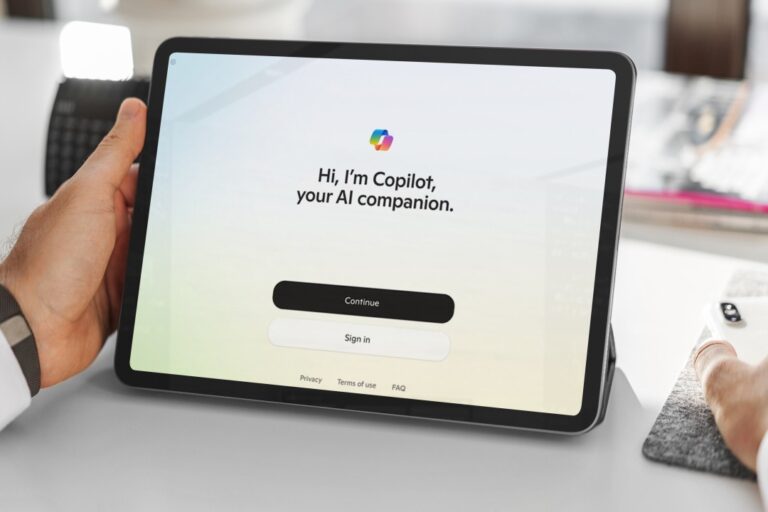Over the past several years, the healthcare industry has tried to leverage the potential of data and analytics to address the industry’s perennial concerns about cost, quality, and accessibility. For the time being, health organizations have decided to harness cloud computing’s abilities to help them with their jobs. When it comes to the health industry, Microsoft provides a reliable cloud option.
Customers can benefit from the collective capabilities provided by the Microsoft Cloud for Healthcare professions, which helps to improve patient engagement and satisfaction. Microsoft Cloud for Healthcare empowers healthcare workers to deliver superior care more simply and expeditiously while simultaneously guaranteeing whole security and compliance requirements.
What is the Microsoft Cloud for Healthcare?
Microsoft Cloud for Healthcare integrates trusted capabilities for customers and partners, empowering them to interact with patients and healthcare teams to help the organization. It also facilitates collaborations between clinicians and operational departments and boosts clinical and operational data analytics for the benefit of both patient outcomes and operational efficiency.
To enhance the value of the system, a comprehensive partner ecosystem has been developed, which consists of additional solutions to address the most important issues facing each business today.
Microsoft Cloud for Healthcare makes it possible for healthcare organizations to synchronize their clinical and operational demands, then swiftly implement Microsoft Cloud for Healthcare so they can power their digital transformation and improve their patients’ health.
Microsoft Cloud for Healthcare connects Microsoft Azure, Dynamics365, Microsoft Power Platform, and Microsoft 365 to help healthcare providers streamline the patient journey while also ensuring that the overall patient experience is secure and seamless.
Know More About Our Microsoft 365 and Consulting Services
Benefits of Microsoft Cloud for the Healthcare Industry
Enhances Patient Engagement
Patients today require digital health systems that enable them to receive virtual doctor visits, health monitoring reminders, and bill payments from home, all while using a range of different devices. The Microsoft Cloud for Healthcare empowers healthcare organizations to connect and unify disparate data and platforms to provide a better patient experience.
Microsoft has also launched a Healthcare Bot Service, which will be accessible in combination with the Cloud for Healthcare among other things. While addressing typical queries or worries of patients, such a service can ease the burden on emergency communication lines for healthcare.
Improves Clinical and Operation Insight
Improve the quality of your health results by making your health data easily accessible. Work with various systems to integrate PHI( Protected Health Information) data and make PHI records longitudinally over Fast Healthcare Interoperability Resources(FHIR) to build a continuous record of patients.
After receiving this data, medical professionals can conduct more research, identify issues with the patient’s care, develop clinical insights, use data analytics, use machine learning, and utilize AI.
Empowers Health Team Collaboration
The Cloud for Healthcare provides increased connectivity, allowing for improved collaboration among clinicians, payers, pharmaceutical companies, and health-tech companies. The healthcare sector is extremely complex and difficult to navigate.
Using this integrated solution, healthcare professionals can collaborate more quickly by providing them with the tools, applications, and configurations that are best suited for their specific situations. They will be able to accomplish their duties more successfully and efficiently as a result. Healthcare organizations can engage in and perform a broad range of team activities, such as discharge planning, nurse huddles, and multi-disciplinary meetings.
How to Set up and Configure Microsoft Cloud for Healthcare?
The Microsoft Cloud Solution Center serves as a centralized location for the deployment and configuration of the following Dynamics 365-powered solutions:
- Care Management
- Patient Access
- Patient Service Center
- Home Health
- Patient Outreach
Steps to Set up-
- In the Microsoft Cloud for Healthcare, use Dynamics 365 solutions. The solutions should be deployed through the Microsoft Cloud Solution Center.
- To configure Dynamics 365 for Healthcare on the Microsoft Cloud, go to Cloud for Healthcare and follow the instructions there. Users can specify additional features during the deployment of the healthcare solutions, like connecting with Azure Health Bot and Microsoft Teams and syncing clinical data across different systems with Azure Healthcare APIs.
Use Home health
To ensure coordinated home care for your patients, offer them correct and timely information on the topic they need to know about. Be in constant communication with doctors, supply doctors with pertinent information, and update them on patients’ medical status while on the go. Patient appointments can be scheduled via the Home Health app, which allows healthcare personnel to take into consideration a range of criteria.
Physicians can see patient information immediately in context, and a controlled business process flow guarantees that each step is taken both before and after the visit is scheduled.
The following are some of the most important capabilities of home health:
Scheduled Home Visit-This improves the scheduling of home visit appointments for care coordinators, while at the same time enabling them to access patient information within the context of the situation.
Patient Notification-Send a follow-up client satisfaction survey to patients to let them know when they should expect to see you.
Home Visit-For the home visit, coordinate the care and assistance of various processes and duties.
Microsoft Cloud for Healthcare’s Home Health solution consists of two apps that work together. The Home Health app is tailored to the individual who is booking the appointments. With the help of this software, you can create Home Health cases and then walk through the process of scheduling home visits for the patient.
Designed specifically for the people who will be traveling to the patient’s house and doing the necessary services, the Care Team Member app is a must-have. Their progress may be tracked using the app, and they can see the complete patient profile.
Use Patient Access
Assist patients in gaining access to their health information as well as knowledge articles and appointment scheduling in-person and virtually. Using the Patient Access portal, patients can engage in conversation with a health bot, interact with a caregiver, and examine their clinical data, among other things.
The following are some of the most key duties for Patient Access:
Engagement on a Direct Basis-Patients can interact with you by participating in automated chat dialogues that are routed to your medical service center.
Provide Ease to Patients-Provide patients with an easy-to-use interface via which they may obtain their health information.
synchronizing and communicating-Allow your patients to book appointments and contact their doctors directly.
The Microsoft Cloud for Healthcare includes Patient Access, which is a special Microsoft Power Apps gateway with healthcare-specific functionality.
Conclusion
The capabilities provided by the Microsoft healthcare cloud service assist the healthcare industry in scaling up digital health technology. It also provides tools to increase data interoperability, workflow efficiency, and the efficiency of interactions with patients.
If you require assistance with Microsoft Cloud for Healthcare, or support in taking the initial step towards the process, get in touch with TrnDigital today.




